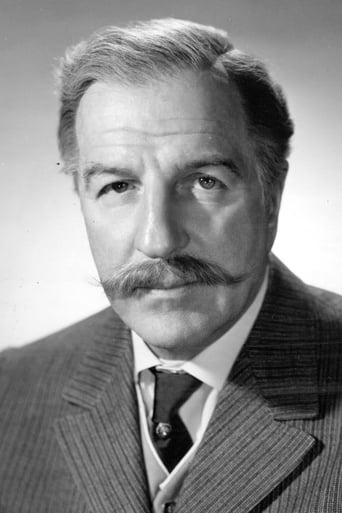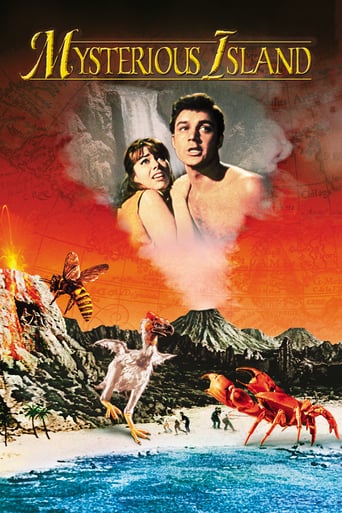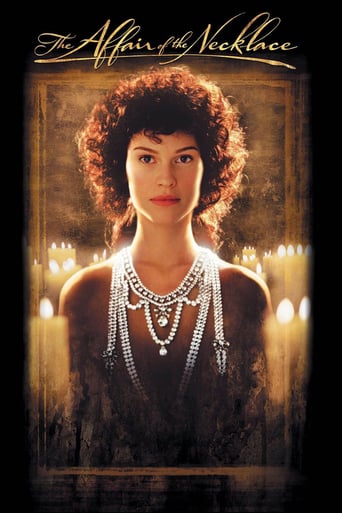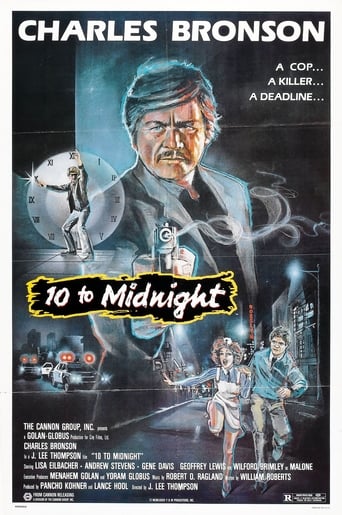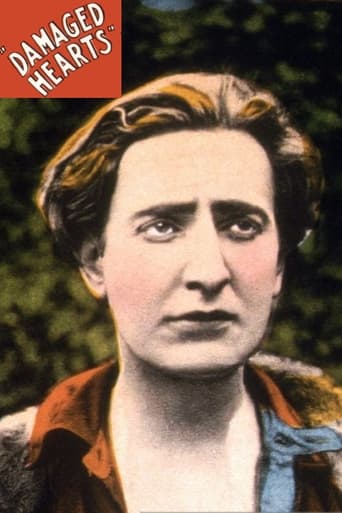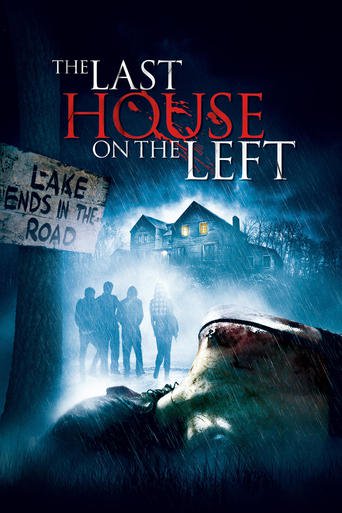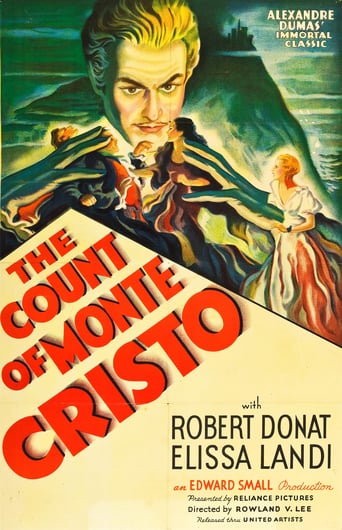
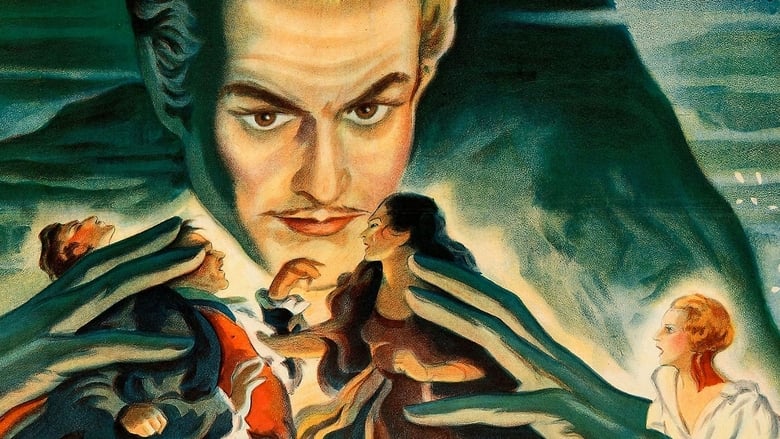
The Count of Monte Cristo (1934)
After greedy men have Edmound Dantes unjustly imprisoned for 20 years for innocently delivering a letter entrusted to him, he escapes to revenge himself on them.
Watch Trailer
Cast


Similar titles
Reviews
No film version can substitute for reading the unabridged version of The Count of Monte Cristo. No doubt there is no substitute for reading it in French, but for English-speakers Robin Buss' 1996 English translation reportedly captures the both spirit and letter of Dumas' novel better than previous translations. In my opinion, the 1934 film also captures the spirit of the book, but omits many characters and story lines, and adds or rewrites others. Nevertheless, this film version is fun to watch.
This takes place in 1815. Young handsome Edmond Dantes (Robert Donat) is unjustly accused of treason by three evil men. He is imprisoned but his girlfriend Mercedes (Elissa Landi) vows to wait for him. Then he is mistakenly believed to be dead and she abandons hope. He is in prison for 20 years virtually forgotten. Then with the help of another prisoner (O.P. Heggie) he escapes and vows revenge on all three of the men who wronged him. The problem is Mercedes is now married to one of them.I never read the book so I can't compare it but this is a fast-moving and very good film. It was independently made but still has excellent production values and costumes. The story is shown in quick short sequences which move briskly ahead. Donat is excellent in the lead however he's physically all wrong for the role. He's tall and thin and was plagued by health problems all his life and it shows here occasionally. Heggie is also excellent in his role and was just a year away from playing a blind beggar in "Bride of Frankenstein". Landi unfortunately is pretty terrible as Mercedes. She comes across as unattractive and somewhat cruel. I kept wondering what Edmond saw in her. Still this is a very good movie and well worth watching. Good luck finding a clean print.
In 1844, French author Alexander Dumas completed his most famous work called " The Count of Monte Cristo. " Since then, not only has it become a Standard Classic among the great works of literature, but has been rendered onto the Silver Screen, five times. This is the 1934 version which hosts the great film star, Robert Donat as Edmond Dantes. If you have read the book, following the movie is not difficult. The story tells of Edmond Dantes, a young sailor and 1st Mate to the Captain, who returns to his home port of Marseille, to marry Mercedes (Elissa Landi) his intended, despite the fact a young Mondego (Sidney Blackmer) want to marry her too. After, explaining to the owner, that the ship's Captain, died during the voyage, he is promoted Captain, to the dismay of the supercargo Danglars (Raymond Walburn), but which is used in a plot by Mondego and Danglars and furthered by the ambitious prosecutor De Villefort (Louis Calhern). Imprisoned in the infamous prison, the Château D'if, Dante's is befriended by the Italian monk, the Abbe Faria (O.P.Heggie) who bequeathes to the falsely accused man, a fabulous fortune with which to seek revenge with. This version is the original film directed by Rowland Lee and is in Black and white. It's a structured movie with a children's fairy tale attitude. The author, Alexander Dumas would have approved of it. ****
The good news is that this turns out to be, as I hoped it might, my "long-lost Monte Cristo" -- the film I once caught the end of, thanks to the BBC, on holiday twenty years ago, and have never been able to find again since. The bad news is that, alas, the part I missed then isn't actually nearly so good as the remainder...The Reliance Pictures production of "Count of Monte Cristo" is a queer mixture of success and banality; of studio polish and poverty-row shortcuts; of efficient editing and crass musical indirection; of genuine emotional power and thumping cliché; of briskly-moving adaptation and bizarre moments of staging (revolving witness-box, anybody?) A literal version of Dumas it is not -- one would not expect it from any film spectacular of this period -- but many of the changes made are entertaining or effective, and the happy ending provided works at least as well as Dumas' rather unsatisfactory version. The meandering original is reduced to a bare two hours' running time by dint of concise scripting and cutting out most of the sub-plots involving the de Villefort and Morrel families, an attempt which is by and large successful. It works less well at the beginning, where there are simply too many unidentified characters popping up and scheming without any of them really being established properly, particularly as Morrel and de Villefort's father are then pruned from the plot, never to appear again. And de Villefort's downfall as presented here really doesn't work for me: lacking the damning evidence of infanticide, the script doesn't seem to come up with any terribly convincing alternative to turn the tables on the prosecutor. On the other hand, introduced material such as Mercedes' (completely uncanonical) aristocratic snob of a mother, or the tableaux in praise of Fernand at which Haydee accuses him, works very well.Ironically -- given the Hollywood studio's doubts as to their unknown English import's ability to pull off anything but a fresh-faced lead -- Robert Donat shines mainly in the latter half of the picture as the older, embittered and sophisticated Monte Cristo. His guileless Dantes makes little impression, for it could be any generic juvenile lead role -- the character as written is not so much naive as uninteresting. Donat fares better where he can give a sense of some hidden depths to the part, and his best features are his strong eyes and brows rather than his cheery grin. As Monte Cristo, however, he is both debonair and dangerous, an intelligent schemer with a dry wit at his enemies' unknowing expense, and he is supported ably by both Douglas Walton as the young Albert and Elissa Landi as Mercedes.It was Miss Landi's performance with which I was truly impressed here; she ages with utter conviction from the wilful girl to the resolute mother, and lends her scenes opposite Donat the real impact that is lacking from so much of the film. In a plot that has been re-angled to concentrate far more closely on the Edmond/Mercedes relationship, her role is vital, and her character provides most of the emotional engagement of the story, from light-hearted charm to heartbreak (Valentine de Villefort, here paired off with Albert, is a mere cypher in comparison).The film starts off in outright formulaic guise, from Napoleon's appearance (in full uniform and cocked hat, with his hand duly thrust in his breast 'like that') to the standard storm-at-sea sequence with water poured across the screen. It continues to suffer from crude musical underlining more or less throughout, almost sabotaging for example Donat's scene with the dying Abbe Faria, which he otherwise pulls off with conviction, while certain characters, such as Morrel and the mute Nubian Ali, appear to have been retained despite the loss of the plot elements which actually involved them (possibly as a result of cuts to the script later in filming?) Overall, however, the adaptation does a pretty good job of conveying information quickly and concisely -- Albert's entire Italian adventure is dealt with effectively in a matter of a few minutes with none of the essentials lost, and Haydee's brief role introduced without any seeming contrivance. It borrows little in practice from Dumas' wordy original save the bare outlines of its plot, and sometimes not even those; but as an initially uninspired Hollywood screen adaptation it improves considerably as it goes on. Literary fidelity isn't everything, and if it were not let down by certain sections I would have rated it considerably higher; alas, this production remains an odd mixture of the powerful and the pedestrian.




